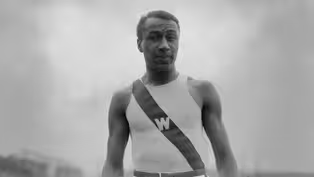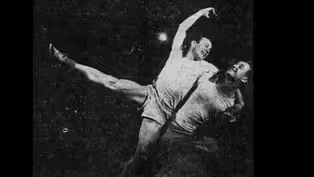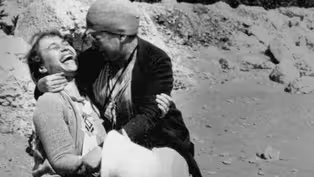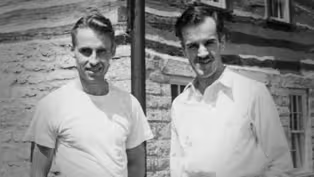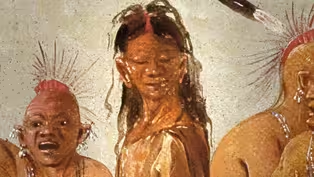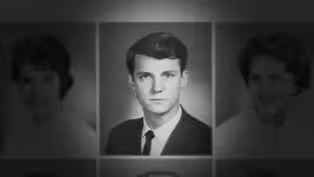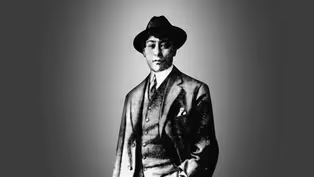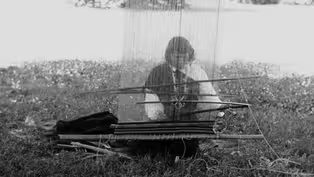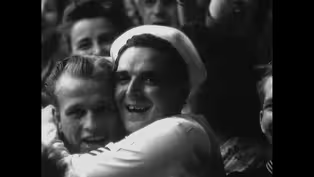Wisconsin Pride
Ralph Warner
Clip: Special | 4m 17sVideo has Closed Captions
Called Wisconsin’s first out gay man, Warner defied the gender expectations of his time.
In 1911, in the village of Cooksville, WI, Ralph Warner bought a decaying property next to the summer home of a good friend. He dubbed it “The House Next Door” and restored it to its 1840s condition, filled it with antiques and welcomed visitors to travel back in time. The effort garnered press attention often centered on the unexpected role of cook and housekeeper a man was performing.
Problems playing video? | Closed Captioning Feedback
Problems playing video? | Closed Captioning Feedback
Wisconsin Pride is a local public television program presented by PBS Wisconsin
Funding for Wisconsin Pride is provided by Park Bank, SC Johnson, the Greater Milwaukee Foundation, the Evjue Foundation, the charitable arm of the Capital Times, TruStage, the New Harvest Foundation,...
Wisconsin Pride
Ralph Warner
Clip: Special | 4m 17sVideo has Closed Captions
In 1911, in the village of Cooksville, WI, Ralph Warner bought a decaying property next to the summer home of a good friend. He dubbed it “The House Next Door” and restored it to its 1840s condition, filled it with antiques and welcomed visitors to travel back in time. The effort garnered press attention often centered on the unexpected role of cook and housekeeper a man was performing.
Problems playing video? | Closed Captioning Feedback
How to Watch Wisconsin Pride
Wisconsin Pride is available to stream on pbs.org and the free PBS App, available on iPhone, Apple TV, Android TV, Android smartphones, Amazon Fire TV, Amazon Fire Tablet, Roku, Samsung Smart TV, and Vizio.
In this same era, another Wisconsin man found his solution to living freely by building his own personal oasis, removed from society and even time.
- Dick Wagner: Ralph Warner of Cooksville, I call Wisconsin's first out gay man.
[acoustic guitar] - An eccentric, living a lifestyle fr om a century before his time, Ralph Warner entertained guests at his home and personal preservation project, which he named 'The House Next Door.'
The old building on a small plot in rural Wisconsin was Warner's very own gateway, transporting him from th e 1920s back to the mid-1800s.
- Larry Reed: He was an unusual character and doing an unusual thing, sort of liking old stuff.
People were tossing that stuff away.
- Warner's interests ran counter to the mood of his times, as 1920s America became more urban and less rural.
His deliberate effort to slow the increasingly frenetic pace of life caught the attention of magazines and newspapers.
- Larry Reed: The word was out.
Good Housekeeping, House and Garden.
Ralph Warner put Cooksville on the map.
- Warner's land of long ago promised more than a collection of antiques and old-fashioned meals.
It was a place where on e could live a different life.
- Will Fellows: Warner was really, in some ways, ministering to certain people who were looking for something to soothe their angst about the ways in which American life was changing.
[engine rumbles] But then, ironically, the automobile, which in some ways was the bane of preservation, was also the lifeline that brought people to Cooksville to find their hours of respite in Warner's creation of The House Next Door.
- Larry Reed: Ralph Warner's House Next Door was charming, just a charming little place.
People called it "a wee bit of England in Wisconsin."
- Will Fellows: Summer evenings with the windows open, the sound of song and piano from the House Next Door traveling through this little village.
- But the main attraction was Ralph Warner himself.
- Dick Wagner: He tells one lady who comes to look at his curios: "Well, you should look at me.
I'm the most curious thing here."
So, he had just sort of created this persona for himself.
And they gave fairly good clues about who he was.
- Warner defied the strict gender norms of the 1920s.
He entertained his visitors by cooking and serving the meals himself.
He designed and curated the interior of his home, and tended hi s traditional English garden.
- Will Fellows: It's representative of a certain strain of the gay sensibility.
It includes that love of things related to the home and decor, things related to hospitality and caregiving.
- Dick Wagner: By presenting himself as who he was, he was, in his own way, for his own time, coming out, which is really quite remarkable for the 1920s.
- Through the House Next Door, Warner had created his own personal haven.
A place removed from time, where people could be who they wanted to be.
- Will Fellows: He really viewed it as a sacred little space that he would share with people, like-minded, kindred spirit type people.
Video has Closed Captions
Clip: Special | 7m 25s | La Crosse’s George Poage, the first Black Olympic medalist, lived a hidden life. (7m 25s)
Video has Closed Captions
Clip: Special | 6m 35s | In UW’s Haresfoot club, men performed in drag, but members ran afoul of the University. (6m 35s)
Video has Closed Captions
Clip: Special | 6m 13s | The progressive, visionary lesbian couple behind Milwaukee's Institute of Art and Design. (6m 13s)
Video has Closed Captions
Clip: Special | 6m 56s | Influenced by Warner’s example, two gay men created the influential historic site. (6m 56s)
Preview: Special | 3m | George Poage, forced to hide his LGBTQ+ identity, became the first Black Olympic medalist. (3m)
Preview: Indigenous Two-Spirit
Preview: Special | 3m 35s | Wisconsin's LGBTQ+ history and present includes Indigenous two-spirit people. (3m 35s)
Video has Closed Captions
Clip: Special | 6m 11s | A secret policy of removing gay students and staff from UW-Madison took an enormous toll. (6m 11s)
Video has Closed Captions
Clip: Special | 5m 44s | Put on trial for gender expression, Ralph Kerwineo became the “Girl-Man” of Milwaukee. (5m 44s)
Video has Closed Captions
Clip: Special | 3m 42s | Two-Spirit is a term today encompassing many Indigenous beliefs about gender identity. (3m 42s)
Video has Closed Captions
Clip: Special | 2m 6s | World War Two fight held unfulfilled promises for a better life for LGBTQ+ Americans. (2m 6s)
Providing Support for PBS.org
Learn Moreabout PBS online sponsorshipSupport for PBS provided by:
Wisconsin Pride is a local public television program presented by PBS Wisconsin
Funding for Wisconsin Pride is provided by Park Bank, SC Johnson, the Greater Milwaukee Foundation, the Evjue Foundation, the charitable arm of the Capital Times, TruStage, the New Harvest Foundation,...
